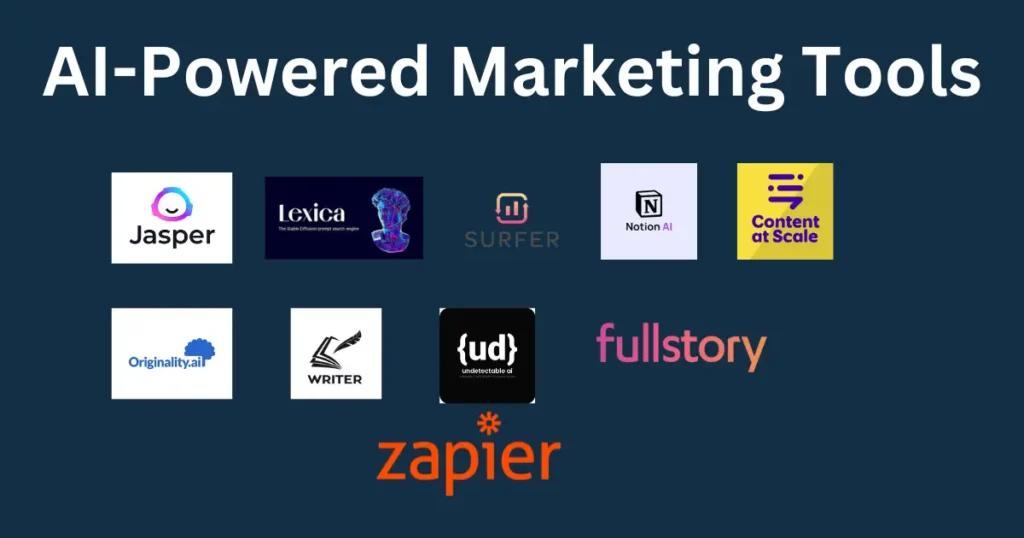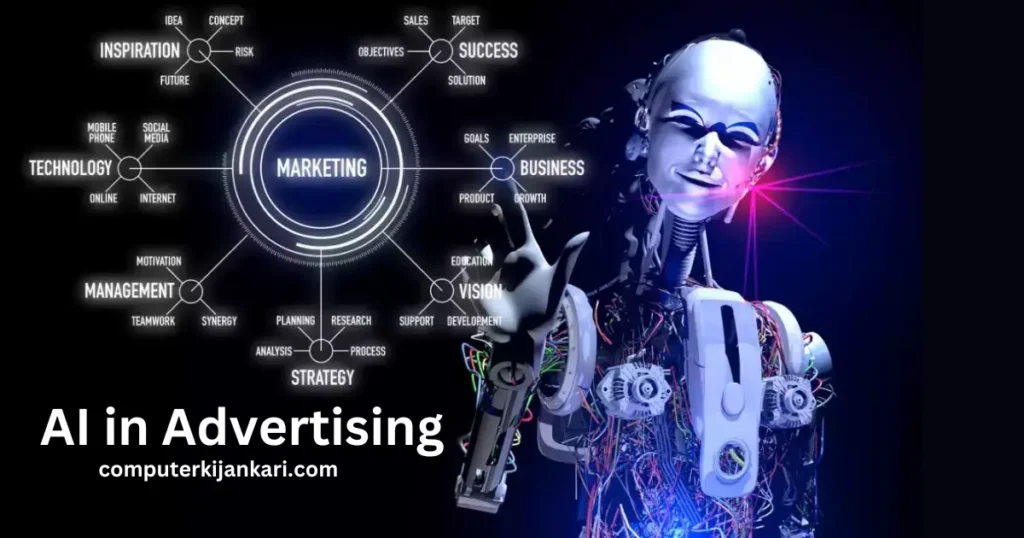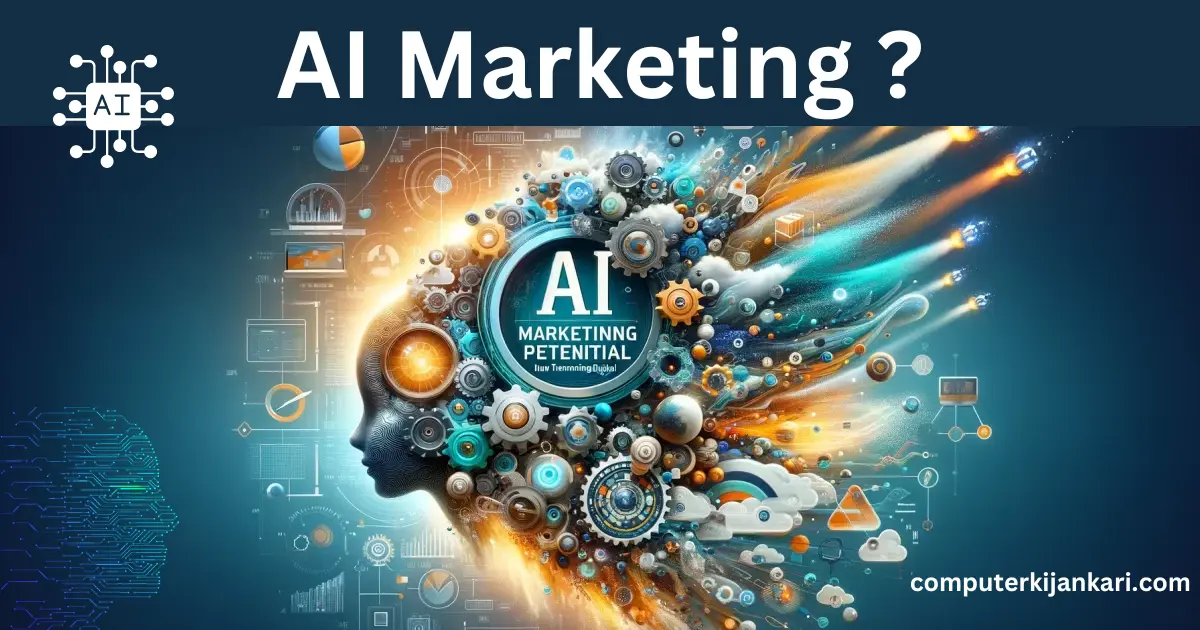Introduction to AI Marketing
Artificial Intelligence (AI) is revolutionizing numerous industries, and marketing is no exception. But what exactly is AI marketing? At its core, AI marketing involves leveraging artificial intelligence technologies to automate and optimize marketing tasks. This encompasses everything from data analysis to customer interactions, transforming how businesses approach their marketing strategies. In today’s fast-paced digital world, incorporating AI into marketing is no longer a luxury but a necessity.
The Evolution of AI in Marketing
Early Uses of AI in Marketing
AI’s journey in marketing began modestly with basic automation tools. Early applications included simple algorithms for email marketing and predictive analytics to forecast trends. These rudimentary tools laid the groundwork for more sophisticated AI marketing (technologies) that we see today.
Current Trends and Innovations
Fast forward to the present, and AI has become integral to marketing strategies. Innovations such as machine learning, natural language processing, and advanced analytics are reshaping the landscape. Companies are now using AI marketing to gain deeper insights into consumer behavior, personalize customer experiences, and streamline marketing operations.
Benefits of AI Marketing
Increased Efficiency and Productivity
One of the most significant advantages of AI marketing is its ability to enhance efficiency. By automating repetitive tasks, marketers can focus on more strategic activities. This not only boosts productivity but also reduces the likelihood of human error.
Content Creation on Steroids
AI can assist with content creation in a variety of ways. It can help generate ideas, write headlines and copy, and even personalize content for specific audience segments. This can save marketers a significant amount of time and effort while also ensuring that content is more relevant and engaging.
Enhanced Customer Experience
AI allows for a more personalized customer experience. Through data analysis, AI can predict customer preferences and behaviors, enabling businesses to tailor their offerings accordingly. This leads to increased customer satisfaction and loyalty.
Data-Driven Decision Making
In the age of big data, making sense of vast amounts of information can be daunting. AI simplifies this by analyzing data quickly and accurately, providing actionable insights that inform marketing strategies. This data-driven approach ensures that decisions are based on solid evidence rather than intuition.
Marketing Automation
Repetitive tasks like email marketing and social media scheduling can be automated using AI. This frees up marketers to focus on more strategic initiatives and allows for a more consistent and timely marketing presence.
Key AI Technologies in Marketing
Machine Learning (ML)
This is the foundation of many AI applications in marketing. ML algorithms learn from data to identify patterns, make predictions, and automate tasks. Marketers use ML for tasks like customer segmentation, churn prediction, and ad targeting.
Computer Vision
This technology enables AI to extract meaning from images and videos. Marketers use computer vision for tasks like analyzing customer behavior on websites (e.g., what sections they focus on), optimizing product packaging design, and even personalizing product recommendations based on a user’s image.
Natural Language Processing (NLP)
Natural Language Processing (NLP) is a technology that enables machines to understand and respond to human language. In marketing, NLP is used in chatbots, sentiment analysis, and content generation, allowing for more interactive and personalized customer interactions.
Deep Learning
This is a subfield of ML that uses artificial neural networks to process information in a way similar to the human brain. Deep learning is used for complex tasks like image and speech recognition, which can be applied in marketing for tasks like automated content creation and generating personalized video ads.
Predictive Analytics
Predictive analytics involves using historical data to predict future outcomes. In marketing, this technology helps businesses forecast trends, optimize campaigns, and anticipate customer needs, leading to more effective marketing strategies.
AI-Powered Marketing Tools

- Jasper (formerly Jarvis): A powerful AI writing assistant that can help you create a variety of content formats, including blog posts, social media posts, website copy, and even scripts.
- Surfer SEO: An AI-powered SEO tool that helps you optimize your content for search engines.
- Hootsuite and Sprout Social: These social media management platforms offer AI-powered features for scheduling posts, tracking performance, and generating content.
- Salesforce Einstein: An AI-powered CRM platform that helps you automate tasks such as lead scoring, customer segmentation, and personalized email marketing.
- Google Marketing Platform and Facebook Ads Manager: These advertising platforms offer AI-powered features for automating ad bidding, targeting, and optimization.
Chatbots and Virtual Assistants
Chatbots and virtual assistants are becoming increasingly common in customer service. These AI-driven tools can handle inquiries, provide product recommendations, and assist with purchases, offering a seamless customer experience around the clock.
Automated Email Marketing
AI has transformed email marketing by enabling more personalized and timely communications. Automated email marketing tools use AI to segment audiences, craft personalized messages, and schedule emails for optimal engagement.
Customer Relationship Management (CRM) Systems
Modern CRM systems are powered by AI, allowing businesses to manage customer relationships more effectively. AI-enhanced CRMs can analyze customer interactions, identify patterns, and provide insights to improve customer engagement and retention.
Personalization and Customer Segmentation
How AI Personalizes Marketing
AI excels at personalization by analyzing vast amounts of customer data to understand individual preferences and behaviors. This allows businesses to deliver tailored content, product recommendations, and marketing messages that resonate with each customer.
The Role of AI in Customer Segmentation
Customer segmentation involves dividing a customer base into distinct groups based on shared characteristics. AI enhances this process by using advanced algorithms to identify patterns and trends within the data, enabling more precise and effective segmentation.
Content Creation and Curation
AI in Generating Content
AI is making waves in content creation by generating high-quality articles, social media posts, and even video scripts. Tools like GPT-3 can produce human-like text, allowing marketers to scale their content efforts efficiently.
AI in Curating Content for Target Audiences
Content curation involves selecting and organizing relevant content for specific audiences. AI tools can analyze user data to identify interests and preferences, helping marketers curate content that is more likely to engage their target audience.
Social Media Marketing with AI
AI in Social Media Management
Managing social media can be time-consuming, but AI simplifies the process. AI tools can schedule posts, analyze engagement metrics, and even respond to comments, allowing marketers to maintain a robust social media presence with minimal effort.
- Enhanced Content Creation and Scheduling:
- AI can assist in generating content ideas, crafting compelling headlines and captions, and even creating basic visuals. This can significantly reduce content creation time and effort.
- AI-powered social media management tools can schedule your posts in advance, ensuring a consistent presence across platforms.
- Intelligent Targeting and Personalization:
- AI can analyze vast amounts of social media data to understand your audience demographics, interests, and online behavior.
- This allows for highly targeted social media advertising, reaching the right people with the right message at the right time.
- AI can also personalize your social media content to resonate better with different audience segments.
- Real-Time Engagement and Community Management:
- AI-powered chatbots can handle basic customer inquiries and complaints on social media platforms, freeing up your team to focus on more complex issues.
- AI can monitor social media conversations for brand mentions and sentiment analysis, allowing you to respond to customer feedback promptly and effectively.
- Powerful Social Media Analytics and Reporting:
- AI can analyze the performance of your social media campaigns, providing valuable insights into what’s working and what’s not.
This data can be used to optimize your social media strategy, improve content performance, and maximize your return on investment (ROI).
Influencer Marketing and AI
AI is also transforming influencer marketing by identifying the right influencers for a brand. AI tools can analyze influencer performance metrics, audience demographics, and engagement rates, ensuring that brands partner with influencers who align with their goals.
AI in Advertising

Programmatic Advertising
Programmatic advertising uses AI to automate the buying and selling of ad space. This technology enables real-time bidding, allowing marketers to target the right audience at the right time with precision.
Targeted Advertising Strategies
AI enhances targeted advertising by analyzing user data to deliver personalized ads. This increases the likelihood of conversion, as ads are shown to individuals who are more likely to be interested in the product or service.
- Hyper-Targeting for Laser Focus:
Traditionally, advertisers relied on demographics and basic interests to target audiences. AI takes it much further. By analyzing vast amounts of data, including online behavior, purchase history, and social media interactions, AI can create incredibly detailed customer profiles. This allows for hyper-targeted advertising, ensuring your message reaches the people most likely to be interested in your product or service.
- Dynamic Creative that Converts:
Imagine generating thousands of personalized ad variations in real-time. That’s the power of AI in creative development. AI can analyze audience data and preferences to create dynamic ad copy, images, and videos that resonate with individual viewers. This significantly increases the chances of grabbing attention and driving conversions.
- Bidding Strategies on Autopilot:
Optimizing ad bids for maximum return on investment (ROI) can be a complex and time-consuming process. AI removes the guesswork. Machine learning algorithms can analyze campaign data and competitor strategies in real-time, automatically adjusting bids to get the most out of your advertising budget.
- A/B Testing on Steroids:
Traditionally, A/B testing involves comparing a few variations of an ad to see which performs best. AI can automate this process at scale, testing hundreds of variations simultaneously. This allows for faster identification of the most effective ad elements, leading to continuous campaign improvement.
- Unlocking the Power of Personalization:
AI can personalize the ad experience beyond demographics. Imagine an ad displaying products a customer recently viewed on another website. This level of personalization fosters a sense of connection and significantly increases the likelihood of a customer clicking through or making a purchase.
- AI-powered Analytics for Sharper Decisions:
AI goes beyond just delivering ads. It provides powerful analytics that give you a deep understanding of campaign performance. You can see which demographics are responding best, what creative elements resonate most, and how much each click or conversion costs. This data empowers you to make data-driven decisions and optimize your advertising strategy for maximum impact.
Challenges and Ethical Considerations
Data Privacy Concerns
With great power comes great responsibility, and AI marketing is no exception. The use of AI in marketing raises significant data privacy concerns. Businesses must ensure they handle customer data ethically and comply with regulations like GDPR to protect user privacy.
Ethical Use of AI in Marketing
Beyond privacy, ethical considerations include the fair and transparent use of AI. This means avoiding manipulative practices and ensuring that AI-driven decisions do not inadvertently perpetuate biases or discrimination.
Case Studies of Successful AI Marketing Campaigns
Examples from Leading Brands
Several leading brands have successfully integrated AI into their marketing strategies. For instance, Netflix uses AI to recommend content to users, while Amazon employs AI to suggest products based on browsing history.
Lessons Learned
These case studies highlight the importance of data quality, continuous optimization, and a customer-centric approach. They demonstrate that when implemented correctly, AI can significantly enhance marketing outcomes.
The Future of AI in Marketing
Emerging Trends
The future of AI in marketing looks promising, with emerging trends such as voice search optimization, AI-driven video content, and hyper-personalization. These innovations will continue to push the boundaries of what is possible in marketing.
Predictions for the Next Decade
Over the next decade, we can expect AI to become even more integrated into marketing strategies. Advances in AI technology will enable even greater levels of personalization, automation, and efficiency, transforming how businesses connect with their audiences.
How to Get Started with AI Marketing
Steps for Businesses
Getting started with AI marketing involves several key steps. First, businesses should assess their current marketing strategies and identify areas where AI can add value. Next, they should invest in the right tools and technologies, and finally, they should train their teams to leverage AI effectively.
Resources and Tools
Numerous resources and tools are available to help businesses implement AI marketing. These include AI-powered marketing platforms, online courses, and industry reports that provide insights and best practices.
Tips for Small Businesses and Startups
Cost-Effective AI Solutions
For small businesses and startups, budget constraints can be a challenge. However, many affordable AI solutions are available, such as AI-driven email marketing tools and chatbots, which can help these businesses compete with larger players.
Scaling AI Marketing Efforts
As businesses grow, scaling AI marketing efforts becomes crucial. This involves continuously optimizing AI tools, integrating them with other marketing platforms, and staying up-to-date with the latest AI advancements.
Conclusion
AI marketing is not just a buzzword; it’s a game-changer for businesses of all sizes. By leveraging AI, companies can enhance efficiency, deliver personalized experiences, and make data-driven decisions that drive growth. As AI technology continues to evolve, its impact on marketing will only increase, making it essential for businesses to stay ahead of the curve and embrace this transformative technology.
FAQs
What is AI Marketing?
AI marketing involves using artificial intelligence technologies to automate and optimize marketing tasks, from data analysis to customer interactions.
How does AI improve marketing strategies?
AI improves marketing strategies by enhancing efficiency, personalizing customer experiences, and providing data-driven insights that inform decision-making.
Are there affordable AI marketing tools for small businesses?
Yes, there are many affordable AI marketing tools available, such as AI-driven email marketing platforms and chatbots, which can help small businesses compete effectively.
What are the risks of using AI in marketing?
The risks of using AI in marketing include data privacy concerns and ethical considerations, such as avoiding manipulative practices and ensuring fair use of AI-driven decisions.
How will AI shape the future of marketing?
AI will continue to shape the future of marketing by enabling greater personalization, automation, and efficiency, transforming how businesses connect with their audiences.
I hope you are having a wonderful day! I have a small favor to ask. I’m aiming to rank in the top 10 on the ChatGPT store, and I can’t do it without your amazing support. Could you please use my GPT and leave some feedback? Your positive reviews would mean the world to me and help me achieve my goal. Additionally, please bookmark my GPT for easy access in the future. Thank you so much for your kindness and support!


